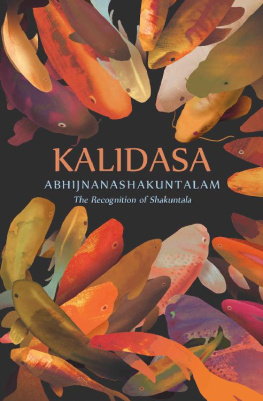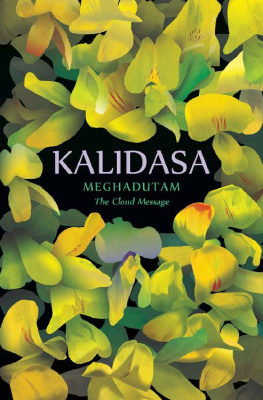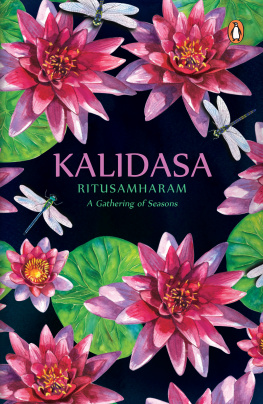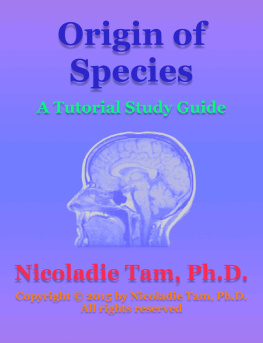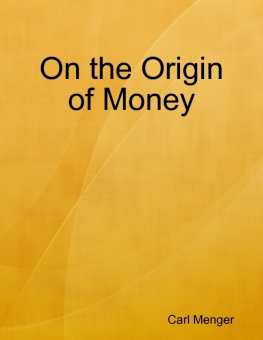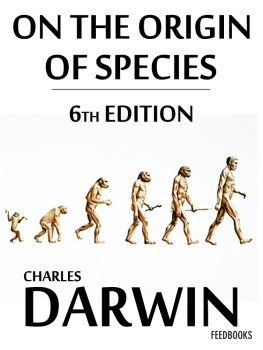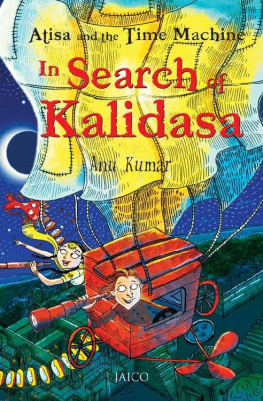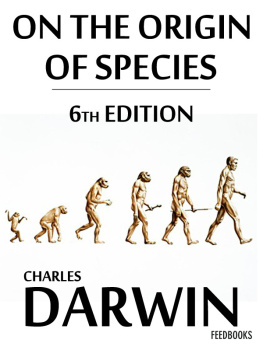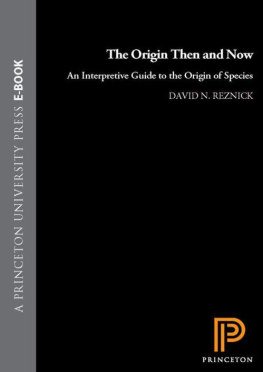Kalidasa - Kumarasambhavam: The Origin of the Young God
Here you can read online Kalidasa - Kumarasambhavam: The Origin of the Young God full text of the book (entire story) in english for free. Download pdf and epub, get meaning, cover and reviews about this ebook. year: 2014, publisher: Penguin Books Ltd, genre: Art. Description of the work, (preface) as well as reviews are available. Best literature library LitArk.com created for fans of good reading and offers a wide selection of genres:
Romance novel
Science fiction
Adventure
Detective
Science
History
Home and family
Prose
Art
Politics
Computer
Non-fiction
Religion
Business
Children
Humor
Choose a favorite category and find really read worthwhile books. Enjoy immersion in the world of imagination, feel the emotions of the characters or learn something new for yourself, make an fascinating discovery.

Kumarasambhavam: The Origin of the Young God: summary, description and annotation
We offer to read an annotation, description, summary or preface (depends on what the author of the book "Kumarasambhavam: The Origin of the Young God" wrote himself). If you haven't found the necessary information about the book — write in the comments, we will try to find it.
Kumarasambhavam: The Origin of the Young God — read online for free the complete book (whole text) full work
Below is the text of the book, divided by pages. System saving the place of the last page read, allows you to conveniently read the book "Kumarasambhavam: The Origin of the Young God" online for free, without having to search again every time where you left off. Put a bookmark, and you can go to the page where you finished reading at any time.
Font size:
Interval:
Bookmark:




For Natasha
woman of healing beauty
with timeless love
Klidsas Kumrasabhavam is the greatest long poem in classical Sanskrit, by the greatest poet of the language. Only the Raghuvaaa more extended but also a more uneven work by the same authorcan be considered its rival for that title. Sanskrit (from saskta) means perfected, completely accomplished and also purified. The language is closely related to ancient Greek and Latin. It first appears in literary history as Vedic, the idiom of the Four Vedas that constitute (especially the g Veda, the Veda of Hymns) the oldest literature of the Indo-Europeans who, as pastoral tribesmen and warriors, began entering the Indian subcontinent about 1500 BCE . Classical Sanskrit is the later language, as described by the grammarian Pini (c. fifth century BCE ). This description was later interpreted as a codification, thereby artificially regularizing and encapsulating the language. Very early in its history classical Sanskrit became the speech of the educated to the educated, the language used in imperial courts and in the assembly halls for theological and philosophical discussion, while vernaculars called Prakrits (from prkta, ordinary, unrefined, original) developed for all other uses and people.
Although classical Sanskrit is still spoken and written in India by traditional scholars and clerics, its great period as a language for major poetry extends from the time of the later Upaniads (c. 600 BCE ) to the end of the first millennium ce. A few valuable poems and verse plays come later, but even by the tenth century ce the separation between Sanskrit and the vernaculars seems to have grown too wide and Sanskrit to have lost much of its emotional force for the creation of poetry. (Among theologian-philosophers writing in prose, many of whom used Sanskrit continually and conversationally in monastic or priestly life, the language remainedand still isemotionally alive as a medium for debate and analysis.)
Klidsa seems to have lived at a perfect time for Sanskrit, a period when this cultivated language had not yet grown too remote from the Prakrit of everyday speech. He consistently uses Sanskrit as a living language of feeling. In contrast to the later emphasis, overwhelming towards the end of the millennium and after, on puns and erudite indirection in poetry, Klidsas Sanskrit is normally direct and clear, but of a greater complexity and higher polish than that of earlier authors or of the more popular Epic Sanskrit of the Rmyaa and the Mahbhrata. The rhythmic and sonic resources of Sanskrit had been developed from the Epic idiom and were now available for kvya (Ornate Poetry). In Klidsas voice this kvya Sanskrit is still plausible speechat elegant levels of strongly felt emotion expressed in sensuous detail, with a classical but fresh perfection and moderation of form.
Classical Sanskrit poetry has often been compared to the productions of eighteenth-century English neoclassicism, chiefly because of the kvya use of epithets, firmly fixed metres and elaborate circumlocutions for the sake of elegant variation. The comparison is misleading, however, as regards the charge of the poetry. Sanskrit verse is far more sensuous in image, rhythm and sound play and far more concerned with emotion, the inner life, than with wit, the comment on the other. These qualities of Sanskrit verse exist in Klidsas great predecessors, such as the dramatist Bhsa, who was still close to Epic simplicity in his handling of emotion, or Avaghoa, with his Buddhist kvyas full of exultation; they are also found in his successorsBhavabhti, for instance, and his psychologically acute presentation of tragedy, or the poets Bharthari and Amaru, to whom hundreds of superb lyrics are attributed. In Klidsa these qualities of the best Sanskrit verse are combined with perfect pitch as well as a security of valuesand apparently of worldly positionunder (if his estimated date is correct) Indias most illustrious empire.
Verifiable biography is rare among the great figures of Sanskrit literature. About Klidsa, the unquestioned summit of Sanskrit poetry, we know, for certain, nothing. He is the author of two mahkvyas (Great Ornate Poems), the Kumrasabhavam and the Raghuvaa; three plays, Abhijnakuntalam, Vikramorvayam, and Mlavikgnimitram; and a khaakvya (Extended Lyric), the Meghadta. Another work generally accepted as his (though denied by some) is the tusahra, a collection of stanzas on the six seasons of the Indian year.
Within the Sanskrit and pan-Indian tradition, Klidsa has become the model of the great poet. Folk legends have gathered around his name and have been preserved in the oral tradition and written works based on that tradition. They are of the sort that have been traditionally attached, in India and elsewhere, to great men become myths. One legend presents him as a dull and ignorant man who was given miraculous skill by the goddess Kl. He then takes the name Klidsa, which seems to mean slave (or servant) of Kali. The Bhojaprabandha (c. sixteenth century ce) places him impossibly out of his time, at the eleventh-century court of King Bhoja of Dhra, in competition with other poets also lifted from their centuries and set down together outside history. Still another legend would have him at the court of Kumradsa of Ceylon (c. sixth century ce), dying from the poison administered by a courtesan jealous of his literary skill.
For life rather than legend, we can only speculate. General scholarly consensus now places him in the fourth or fifth century ce, during the reign of the imperial Guptas, the classical age of Hindu art and politics. (Some Indian scholars still argue for a much earlier date.) Since his works indicate that Klidsa moved successfully in a glittering imperial environment, the role of court poet to the Guptas, like Virgils to Augustus Caesar, suits his tone of assurance and convinced commitment to the hierarchical and brahminical values of his society.
Other sorts of evidence, including certain features of stylistic development, favour this dating. Klidsas language (including the Prakrits used in his dramas) is distinctly more sophisticated than that used by the Buddhist writer Avaghoa or by Bhsa, the only other major early dramatist whose works or fragments of works have survived. The first part of the second century ce seems a likely date for Avaghosa, since a plausible tradition associates him with the ruler Kani ka. Within the mists of Sanskrit literary history it cannot always be established that a particular work had wide enough circulation to affect its successors, but there is some evidence that Klidsa may have been influenced, even in content, by Avaghoa. A steady stylistic development from the earlier poet to the later would not, however, have necessarily taken three centuries. We are left with speculation, but the fifth century ce seems a likely guess.
Klidsa is a dramatist of the first order as well as a lyric poet, but it should be noted that his plays, like virtually all Sanskrit dramas, are written in a mixture of verse and prose, with the verse passages carrying the primary weight of expression. In drama his power depends not on characterization or plot but on the same qualities found in the
Font size:
Interval:
Bookmark:
Similar books «Kumarasambhavam: The Origin of the Young God»
Look at similar books to Kumarasambhavam: The Origin of the Young God. We have selected literature similar in name and meaning in the hope of providing readers with more options to find new, interesting, not yet read works.
Discussion, reviews of the book Kumarasambhavam: The Origin of the Young God and just readers' own opinions. Leave your comments, write what you think about the work, its meaning or the main characters. Specify what exactly you liked and what you didn't like, and why you think so.

